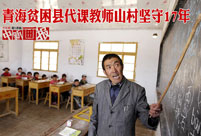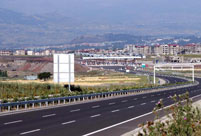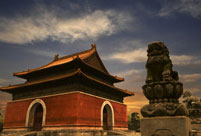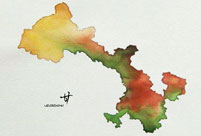 The life of a model: Not as glamorous as it seems
The life of a model: Not as glamorous as it seems
 Hello Kitty, happy 40th birthday!
Hello Kitty, happy 40th birthday!
 The Western Qing Mausoleum
The Western Qing Mausoleum
 Avant-garde approach to graduation photos
Avant-garde approach to graduation photos
 Early PLA posters, signatures of an era
Early PLA posters, signatures of an era
 First Russian Street in Tianjin open to public
First Russian Street in Tianjin open to public
 Motorcycle stunt on the Bund
Motorcycle stunt on the Bund
 French Spiderman Alain Robert climbs up Galaxy Hotel in Macao
French Spiderman Alain Robert climbs up Galaxy Hotel in Macao
 Africans in Guangzhou
Africans in Guangzhou
 Pole dancer shows strength and beauty up in the air
Pole dancer shows strength and beauty up in the air
BEIJING, May 5 -- Chinese Premier Li Keqiang visited the headquarters of the African Union (AU) on Monday and delivered a speech there on the China-Africa cooperation.
The following is a brief introduction to the AU.
The establishment of the AU to replace the Organization of African Unity (OAU) founded in 1963 was envisaged at an African summit in September 1999 in Libya's Sirte, with a view to furthering African cooperation, development and integration.
The Constitutive Act of the AU entered into force in May 2001 and the AU was formally established in July 2002.
The AU is aimed at building a partnership between governments and all segments of civil society, in particular, women, youth and the private sector, in a bid to strengthen solidarity and cohesion among the peoples of Africa.
The AU has 54 member states, and its newest member is South Sudan which became independent on July 9, 2011. Major organs of the AU include the Assembly, the Executive Council, and the Pan-African Parliament and the Commission.
The Assembly, which is the supreme organ of the AU, is composed of heads of state and government or their duly accredited representatives. It meets at least once a year to determine and monitor the union's priorities and common policies and to adopt its annual work program. Resolutions are passed by a two-thirds majority, and procedural matters by a simple majority.
The first Assembly meeting was held in Durban of South Africa in July 2002. A chairperson is elected from among the members to hold office for one year.
The Executive Council, the executive body of the AU, consists of Ministers of Foreign Affairs or such other Ministers of Authorities as are designated by the governments of member states, and meets at least twice a year.
It determines the issues to be submitted to the Assembly for decision, coordinates and harmonizes policies, activities and initiatives of the union in areas of common interests to members, and monitors the implementation of policies and decisions of the Assembly.
The Pan-African Parliament, inaugurated on March 18, 2004, has consultative and advisory powers only, but with the aim of ultimately evolving into an institution with full legislative powers.
The Commission is the permanent secretariat of the union, comprising a chairperson, a deputy chairperson and eight commissioners responsible for peace and security, political affairs, infrastructure and energy, social affairs, human resources, science and technology, trade and industry, rural economy and agriculture, and economic affairs in the region.
The Commission reports to the Executive Council.
 Solar halo occurs in Lhasa
Solar halo occurs in Lhasa High fashion trend welcomed by costumers in Changsha
High fashion trend welcomed by costumers in Changsha 17 years' teaching life in a remote village in Qinghai
17 years' teaching life in a remote village in Qinghai Beautiful Chinese-built roads in Africa
Beautiful Chinese-built roads in Africa The Western Qing Mausoleum
The Western Qing Mausoleum Overseas returnees strive for dreams in Beijing
Overseas returnees strive for dreams in Beijing Fried up: Chili pork bonanza in Central China
Fried up: Chili pork bonanza in Central China Hand-painted maps go viral online
Hand-painted maps go viral online 4th Beijing Int'l Film Festival ends
4th Beijing Int'l Film Festival ends 'African Street' in Guangzhou
'African Street' in Guangzhou Special operation members in comprehensive training
Special operation members in comprehensive training Cute Shaolin boy melts the hearts of millions
Cute Shaolin boy melts the hearts of millions Giant panda Sijia is back to happy life
Giant panda Sijia is back to happy life Richest Chinese of 2014: half from the mainland
Richest Chinese of 2014: half from the mainland Chengdu - laid-back lifestyle makes happiest city
Chengdu - laid-back lifestyle makes happiest cityDay|Week|Month